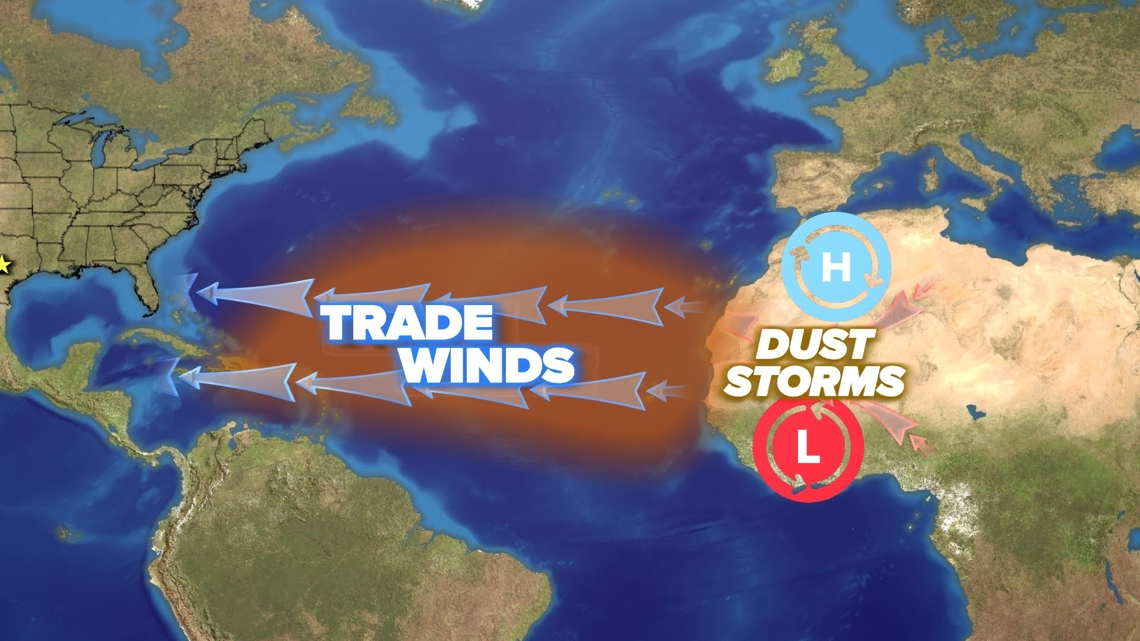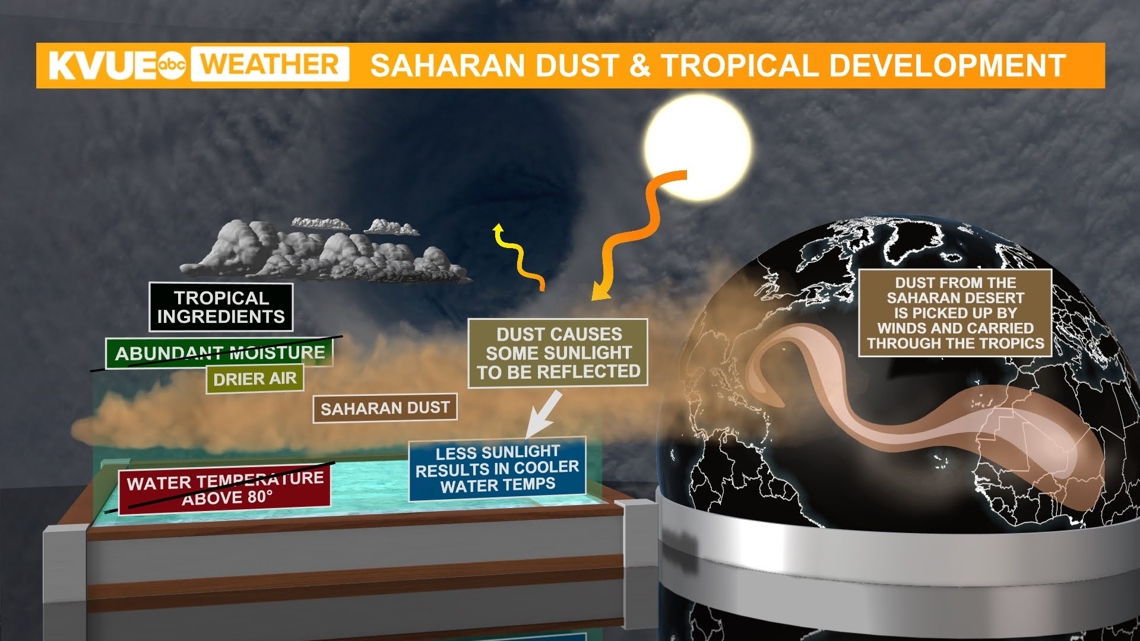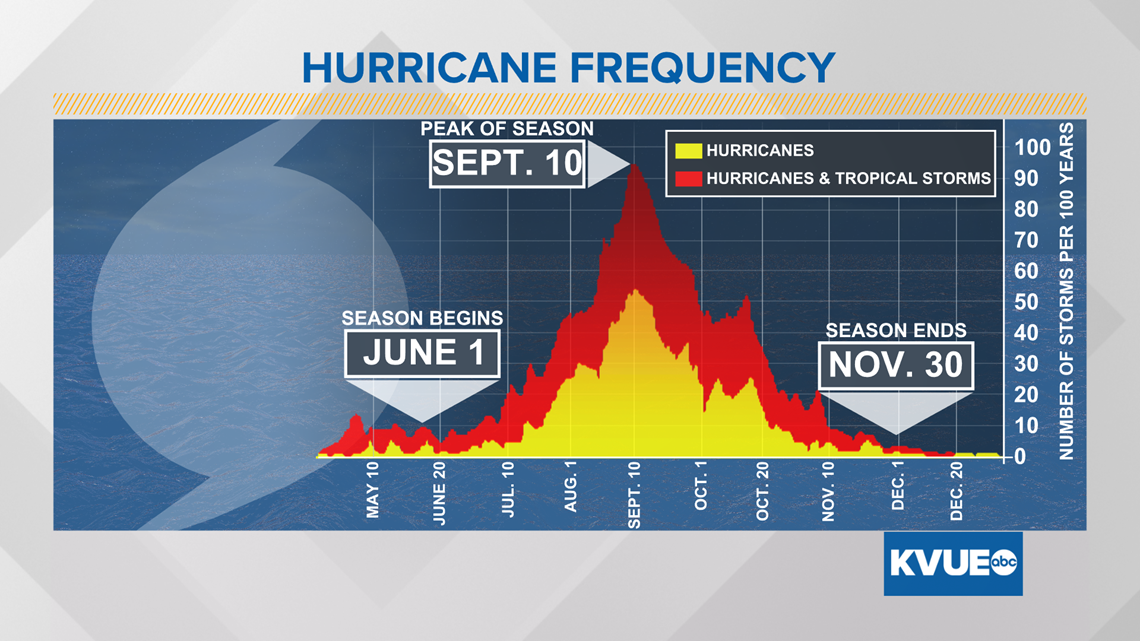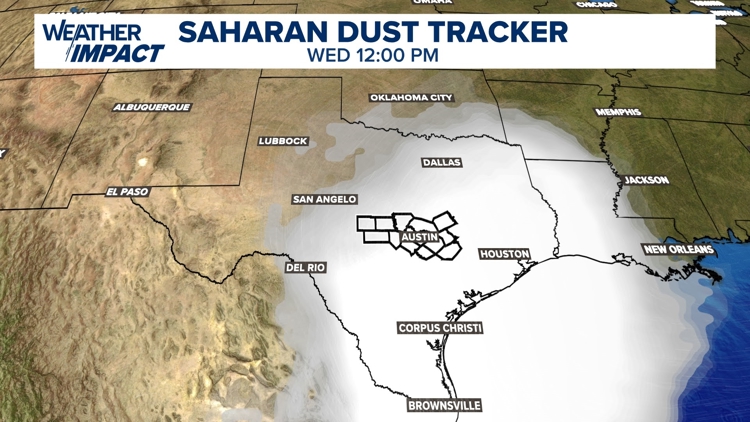AUSTIN, Texas — During hurricane season, plumes of Saharan dust make a long journey across the Atlantic Ocean. And for our forecast here in the U.S., outside of the vivid sunrises and sunsets the dust brings us, usually Saharan dust gets a bad rap.
But the dust is a pivotal component of many global ecosystems. Here are the main ways Saharan dust benefits our planet.


1. Helps maintain global oxygen production
According to a government article published in Trinidad and Tobago, researchers found Saharan dust plumes are one of the primary ways that phytoplankton can feed.
The iron oxides in Saharan dust are small enough for plankton who live in Caribbean and Gulf of Mexico waters. According to researcher Attish Kanhai, "Phytoplankton photosynthesis is responsible for the production of half of the world’s oxygen and uptake of half of the carbon dioxide on the planet."
This means Saharan dust is vital to keeping oxygen levels balanced on Earth.
2. Rich in nutrients for soil
Along similar lines, Saharan dust is also rich in phosphorous. Phosphorus is an element on the periodic table mainly used as a fertilizer, and this is no different for the Saharan dust.
Saharan dust has its biggest effect on plants in the Amazon because as the plumes move east to west across the equator, South America is opposite West Africa. The heavy rain events in the Amazon can often dilute the amount of phosphorus in soils, but Saharan dust is a way to naturally replenish it, and support the vast biodiversity there.
While the vast majority of dust stays south of the U.S., the plumes that make it to Texas are certainly beneficial for our soils locally.
3. Suppresses hurricane development
Saharan dust is a big player when it comes to tropical development.
When Saharan dust travels across the equatorial Atlantic, it acts like a dry sponge and soaks up a lot the of the moist tropical air. Hurricanes need deep layers of moisture to form, and if the Saharan Air Layer is thick enough, it is almost certain to inhibit further organization in the tropics.


Hurricanes also need warm water to form. Dust can act as a reflector, causing water temperatures to stay cooler than normal.
Without Saharan dust, we would most certainly be tracking stronger and wetter hurricanes.
Dust will soon wind down
About halfway through August, these large plumes of dust will start to show up less and less.


This will allow the waves of energy coming off the West Coast of Africa to run into fewer disruptions, and so tropical storms and hurricanes show up more and more.



